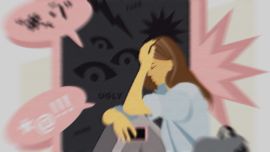On Wednesday, October 25, at 4.21pm, the Unión Cívica Radical staged a press conference, led by Gerardo Morales and Martín Lousteau. At the same time, at a gym in San Isidro, on the outskirts of Buenos Aires, Mauricio Macri was using an exercise bike, watching the Champions League match between Pep Guardiola's Manchester City side and Swiss club Young Boys on television.
As the vignette illustrates, Macri’s interest in the Radicals' view of the break-up of opposition Juntos por el Cambio coalition that the former president had just consummated was almost reduced to contempt. "Macri is happy, he wanted to fuck up the life of Juntos por el Cambio", charged Morales in that conference while the alluded one followed what Pep's team was doing on television.
Macri has been convinced for months that Radicalism and a sector of Juntos would end up allying with Sergio Massa if there was a second-round of the presidential election. He considered that there were just too many points of communication between these sectors and the economy minister for them to act like real opposition.
With this in mind, he justified his move to break before they did.
The previous Sunday, election night, a comment that reached him convinced Macri that an alliance with Javier Milei was a must. He was told that, in the opposition’s VIP bunker, Emiliano Yacobitti, Lousteau and Morales, Horacio Rodríguez Larreta and Elisa Carrió had approached Patricia Bullrich and asked her to go easy on Massa.
The suggestion was very badly received by the candidate, who decided to double down and attack her government rival. At that time of night, the mood was one of absolute defeatism, the terrible certainty that everything they had built up over the two decades of PRO's existence had just been snatched away from them by a newcomer like Milei, who until three years ago was just a mere TV panellist.
The next day, Bullrich resumed the Presidency of PRO and began to work with Macri on alternatives.
Scenes from the summit
The meeting that made Juntos por el Cambio crackle took place on Tuesday night, October 24.
Macri invited Milei to his house in José C. Paz street, in Acassuso, San Isidro. The libertarian lawmaker was accompanied by his sister Karina Milei, and his political advisors Guillermo Francos and Santiago Caputo. Patricia Bullrich was present with her vice-presidential candidate, Luis Petri, and national deputy-elect Cristian Ritondo and Diego Santilli, PRO’s former gubernatorial hopeful in Buenos Aires Province.
The meeting was planned in two stages. Macri, Bullrich and the Milei siblings had an initial talk from 10.30pm to 11.30pm. Then the other players began to arrive.
There was no food, just a few soft drinks: water, soft drinks and coffee. There were no assistants or secretaries. Neither was Macri’s wife Juliana Awada there – she had opted to take a few days off in Villa La Angostura to rest at the family home in Cumelén house, perhaps foreseeing the hectic days ahead.
Macri, the host, opened the door to the first to arrive: Patricia and the Mileis. They were served drinks and the former president received them in his large living room, where he usually attends to his friends and family, a space of more than 30 square metres decorated with paintings by the Uruguayan artist Guillermo García Cruz, two four-seater armchairs and four armchairs. In the centre, there are two black coffee tables, decorated with vases and art books on them, including one by the fashion designer Tom Ford.
All were summoned in the utmost secrecy. No-one knew who was going to participate in the meeting. Ritondo, Petri and Santilli were surprised to see Milei president. The same thing happened to Francos and Caputo, who did not even know they were entering Macri's house.
The former president observed them and took in their surprised faces. He enjoyed the effect, that hundredth of a second in which everyone discovered the reason for the meeting: a pact was going to be sealed between the two parties.
The talks lasted until after 1am and their main focus was to bring Bullrich and Milei closer together, to have them "befriend" each other. During the campaign they went from throwing flowers at each other to hurling accusations and low blows – such as when the libertarian claimed the PRO leader had planted bombs in kindergartens in her days as a montonera guerrilla, something that led to a criminal complaint (that Bullrich has now promised to drop).
During the meeting, Bullrich took the lead. Both agreed that she would make a public gesture of support and that they would work together with the common aim of beating Massa. The most important request Bullrich made was that La Libertad Avanza "hide" their controversial candidates who can move public debate onto unexpected topics, such as the "renunciation of parenthood" idea raised by Lilia Lemoine.
Some of those present got the impression that it was Bullrich herself who was leading this adventure, and that Macri was only playing the role of a caretaker.
Macri and Milei established a relationship of mutual respect after the former president asked businessman Eduardo Eurnekian to build a bridge between them and neutralise the libertarian's attacks. Eurnekian put them in contact and then each meeting was managed by Alberto Benegas Lynch Jr.
At first there were three video-call chats and one personal meeting, according to journalist Juan Luis González, Milei's unauthorised biography. In the last week before the general election, the duo spoke much more frequently and met again in person on Tuesday for the reconciliation with Bullrich.
The day after the meeting, election monitoring teams from both political spaces were already organising the logistics to face the run-off challenge together.
Internal unrest
Internal unrest
All those attending the meeting had a role to play, especially those chosen by Macri. Why were Cristian Ritondo and Diego Santilli invited? What was Petri doing there?
The vice-presidential candidate was invited because he was Bullrich's running-mate, but also because of his UCR origins. Petri is a man linked to former president Julio Cobos and represents a Radicalism that is closer to Macri and Milei than Massa.
The presence of Ritondo and Santilli has a deeper meaning because they have been Rodríguez Larreta's companions throughout the history of PRO, especially Santilli, who accompanied him in his truncated presidential dream. To include them and not the Buenos Aires City mayor in the meeting is the materialisation of an idea that Macri already had in his head: to displace Rodríguez Larreta and detach him from any possibility of growth within PRO.
The day the City mayor decided to call for concurrent elections in the capital to give Lousteau's Radicalism a chance to take the City, Mauricio Macri made up his mind. The PRO's main refuge is the City – losing it would cause irreparable damage to the party he founded.
The day after the meeting, Rodríguez Larreta was upset with Santilli for hiding the meeting from him. Far from apologising, ‘El Colo’ doubled down and replied that he had many meetings that he did not tell him about. Old anger can come to light when there is a crisis.
Macri's move creates two hypothetical scenarios in the former president's head. On the one hand, if he wins, he will be part of Milei's government with the possibility of including ministers from his entourage. These days names such as Guillermo Dietrich, Jorge Triaca, Germán Garavano and Andrés Ibarra – all former officials from his government who accompanied him very closely in these last four years of flatness, are being considered.
Dietrich is a trusted friend of Macri’s; Garavano advised the former president ad honorem with his judicial problems; Triaca functions as an assembler in the shadows and with Ibarra, Macri shares the ambition to return to power at Boca Juniors.
Another former Macri official that Milei likes is Federico Sturzenegger. Nothing has been finalised yet, but the libertarian wants Macri to help him "form a government," as they say in Spain. This Madrid idea, of co-governance, is also interesting to Bullrich, who would be willing to be part of Milei's government, perhaps even as Cabinet chief. Everything is under review.
In the other scenario, one of defeat, Macri believes he also has a chance of survival because he would continue to hold a leading position in a political space opposed to Kirchnerism. Overseas, Macri is still considered the main opponent of Kirchnerism, and he enjoys giving conferences in other countries talking about his "battle against Kirchnerist populism."
Giving that place to newcomer Milei is not in his plans. Much less being ingested by Radicalism, which, according to his view of things, is willing to move closer to Massa.
The Acassuso Pact not only triggered the break-up of Juntos Por el Cambio, it also generated rejection from the coalition's co-founders, including Carrió, Rodríguez Larreta, Morales and Ernesto Sanz. Leading figures once associated with Macri, such as Marcos Peña and Jaime Durán Barba, also questioned the move. The Ecuadorean political consultant damningly predicted that Macri "is going to end up leading a small party in Barrio Norte.”
Internal conflicts also flared up within La Libertad Avanza: provincial senator-elect Carlos Kikuchi is one of many who are threatened by the entry of a structure like the one led by Macri – it outnumbers them in both headcount and management capacity. Sectors were now quietly criticising the decision to "mix with the caste," when the leitmotiv that took Milei to the gates of the Presidency was one that told of a crusade to put an end to the old politics.
Trade unionist Luis Barrionuevo, who supported the candidate and provided him with structural support in the general election, announced that he was abandoning the libertarian's presidential project. The reason is the arrival of Macri, with whom he ended up at odds during the former president's 2015-2019 government. In Buenos Aires Province, Milei is also being reproached by members of his own party for having signed up with Macri.
This storm, which broke out in the former president's house and is accumulating feelings of betrayal in all political spaces, is part of the political reorganisation that is challenging Argentina’s current political class. Veteran dissident Peronist Miguel Ángel Pichetto has a phrase for these moments: "Betrayal is only a defect if the traitor fails. A hero is a traitor who succeeded.”
As recounted at the beginning of this article, after detonating the bomb Macri went into unconsciousness and went to the gym to watch a football match. Outside, his Radical partners and the "doves" of his PRO party were questioning him for blowing up his own coalition.
Macri has plans to disconnect again before the run-off arrives. From November 9 to 12, he will travel to Chile to take part in a bridge tournament. Meanwhile, in Buenos Aires, everything will continue to smoulder.






















Comments